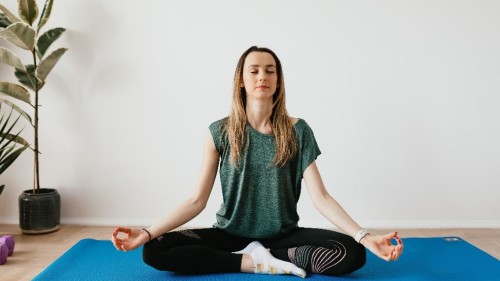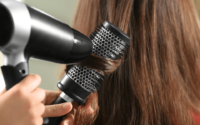Manage Stress. Stress Can Take A Toll On Your Skin. Find Healthy Ways To Manage Stress, Such As Exercise, Yoga, Or Meditation.
In our fast-paced and demanding lives, managing stress has become more important than ever. Not only does stress have a significant impact on our mental and emotional well-being, but it can also take a toll on our skin. Yes, you read that right – stress can actually affect the health and appearance of your skin. But fear not! There are simple and healthy ways you can manage stress and keep your skin glowing. Whether it’s incorporating regular exercise into your routine, finding inner peace through yoga, or practicing the art of meditation, these methods can help you combat stress and achieve a healthier complexion. So, say goodbye to the effects of stress on your skin and say hello to a more balanced and radiant you!

This image is property of blog.kbcinc.cloud.
Impact of Stress on Your Skin
Stress is a common occurrence in our fast-paced modern lives, and it can have a significant impact on our overall well-being. One area where the effects of stress are particularly noticeable is our skin. Understanding the connection between stress and skin health is crucial for maintaining a healthy and radiant complexion.
Understanding the connection between stress and skin health
When you experience stress, your body goes into a “fight or flight” response, releasing stress hormones like cortisol. These hormones can wreak havoc on your skin, leading to a variety of issues. This link between stress and skin health is known as the “brain-skin axis” and has been the subject of numerous scientific studies.
How stress affects the skin’s appearance and condition
One of the most visible ways stress impacts your skin is by exacerbating existing skin conditions or triggering the development of new ones. For example, if you already have acne-prone skin, stress can lead to more frequent breakouts and increased inflammation. Similarly, stress can worsen conditions like eczema, psoriasis, and rosacea.
Additionally, stress can affect the skin’s natural barrier function, leading to dryness, flakiness, and increased sensitivity. This can make your skin more prone to irritation and redness, as well as make it difficult for your skin to retain moisture.
Common skin issues caused by stress
Stress can manifest on your skin in various ways, and it’s essential to recognize these common issues to address them effectively. Some of the most common skin problems associated with stress include:
- Acne: Stress can trigger hormonal imbalances that increase sebum production and clog pores, leading to acne breakouts.
- Eczema: The release of stress hormones can worsen the symptoms of eczema, causing itching, redness, and inflammation.
- Psoriasis: Stress can exacerbate the autoimmune response that leads to psoriasis flare-ups, resulting in red, scaly patches on the skin.
- Rosacea: Stress is a common trigger for rosacea, causing facial flushing, redness, and the appearance of small, visible blood vessels.
- Premature aging: Chronic stress can accelerate the aging process by weakening the skin’s collagen and elastin fibers, leading to fine lines, wrinkles, and dullness.
Exercise as a Stress Management Tool
Exercise is not only beneficial for your physical health but also plays a crucial role in managing stress levels. Engaging in regular physical activity can help reduce the impact of stress on your skin and promote overall skin health.
The role of exercise in reducing stress levels
When you exercise, your body releases endorphins, often referred to as “feel-good” hormones. These endorphins act as natural mood lifters and can counteract the negative effects of stress hormones in your body. Regular exercise has been shown to decrease anxiety and depression, which are often closely linked to stress.
Benefits of exercise for skin health
In addition to its stress-reducing effects, exercise brings a host of benefits for your skin. Physical activity increases blood flow, delivering oxygen and nutrients to the skin cells and improving their overall health. This improved circulation also aids in the removal of toxins, giving your skin a more radiant appearance.
Moreover, exercise promotes the production of collagen, a protein that plays a vital role in maintaining the skin’s elasticity and firmness. By stimulating collagen production, exercise can help reduce the appearance of wrinkles and fine lines, giving your skin a more youthful look.
Recommended types of exercise for stress management
To effectively manage stress and promote skin health, it’s important to choose the right types of exercise. While any form of physical activity has benefits, certain exercises are particularly effective in reducing stress levels. These include:
- Cardiovascular exercises: Activities like running, cycling, swimming, or aerobics can boost endorphin production and help alleviate stress.
- Yoga: Combining physical movement, breathing techniques, and mindfulness, yoga is excellent for reducing stress and promoting overall well-being.
- Pilates: This low-impact exercise focuses on strengthening the core muscles and improving body alignment, which can have a calming effect on the mind.
- Tai chi: A Chinese martial art that involves slow, flowing movements, tai chi promotes relaxation and reduces stress.
- Dancing: Whether it’s in a dance class or at home, moving to music can be a great way to release stress and have fun.
By incorporating these exercises into your routine, you can effectively manage stress and improve the health of your skin.
Yoga for Stress Relief
When it comes to stress relief, few activities are as effective and holistic as yoga. Yoga combines physical postures, breath control, and meditation to create a comprehensive practice that has numerous benefits for both the mind and body. Let’s explore how yoga can improve skin health through stress reduction.
Exploring the calming effects of yoga on the mind and body
At its core, yoga is a practice that encourages mindfulness and self-awareness. Through a series of postures, breathing exercises, and meditation, yoga helps calm the mind and relax the body. This mind-body connection is vital for managing stress, as it allows you to tune into your body’s signals and release any tension or anxiety.
Yoga has been proven to reduce the production of stress hormones like cortisol and activate the relaxation response in the body. By engaging in regular yoga practice, you can cultivate a sense of calmness and balance that extends to all aspects of your life, including your skin.
How yoga can improve skin health through stress reduction
As we’ve already established, stress can have adverse effects on the skin’s appearance and condition. By practicing yoga regularly, you can significantly reduce stress levels, leading to improved skin health.
Yoga promotes better blood circulation, which ensures that vital nutrients reach the skin cells, resulting in a clearer and more radiant complexion. Additionally, the deep breathing techniques used in yoga encourage the elimination of toxins from the body, which can help reduce inflammation and prevent skin issues like acne.
Another way yoga benefits the skin is by reducing muscle tension and promoting relaxation. Facial tension and stress can contribute to the formation of wrinkles and fine lines. By practicing yoga’s relaxation techniques, you can release this tension and achieve a more youthful and relaxed expression.
Specific yoga poses and routines for stress management
To harness the stress-reducing benefits of yoga for your skin, incorporating specific poses and routines into your practice can be highly beneficial. Here are some yoga poses that are particularly effective in relieving stress and improving skin health:
- Child’s Pose (Balasana): This gentle forward bend stretches the hips, back, and shoulders, promoting relaxation and calming the mind.
- Downward-Facing Dog (Adho Mukha Svanasana): This pose elongates the spine and stretches the entire body, releasing tension and invigorating the skin.
- Legs-Up-The-Wall (Viparita Karani): By elevating your legs above heart level, this restorative pose improves circulation and helps reduce stress and anxiety.
- Corpse Pose (Savasana): The final relaxation pose in any yoga practice, Savasana allows for complete rest and rejuvenation, calming the nervous system.
- Alternate Nostril Breathing (Nadi Shodhana Pranayama): This breathing technique balances the energy in your body and calms the mind, reducing stress levels.
In addition to these individual poses, exploring yoga sequences or attending a yoga class specifically focused on stress management can be highly valuable. These routines are designed to target stress reduction and help you achieve a deep sense of relaxation and well-being.
The Power of Meditation
Meditation is a practice that has been utilized for centuries to promote relaxation, mindfulness, and self-awareness. Its benefits extend far beyond the mind, also positively impacting the health and appearance of your skin. Let’s delve into the impact of meditation on stress and its benefits for skin health.
Understanding the impact of meditation on stress
Meditation involves focusing your attention and eliminating the stream of thoughts that constantly occupy your mind. Through various techniques, such as mindfulness meditation or guided visualization, meditation helps quiet the mind, reduce stress, and promote a sense of inner peace.
Research has shown that regular meditation can lead to measurable physiological changes in the body, including reduced heart rate, blood pressure, and cortisol levels. These physical changes indicate a decrease in the body’s stress response, helping you manage stress more effectively.
Benefits of meditation for skin health
The positive effects of meditation on stress extend to the health and appearance of your skin. By reducing stress levels, meditation helps prevent or alleviate many common skin issues associated with stress. Here are some specific benefits of meditation for skin health:
- Reduces inflammation: Stress can lead to increased inflammation in the body, which can manifest as skin redness, irritation, and acne. By practicing meditation, you can decrease inflammation and promote a calmer complexion.
- Enhances skin cell regeneration: Meditation has been found to increase the production of growth factors and decrease oxidative stress, promoting the regeneration of skin cells and a more youthful appearance.
- Improves sleep quality: Adequate sleep is crucial for skin health, as it allows the body to repair and rejuvenate. Meditation can improve sleep quality by reducing anxiety and promoting relaxation, leading to a healthier complexion.
- Balances hormones: Stress disrupts the delicate balance of hormones in the body, which can lead to skin issues like acne and excess oil production. Regular meditation helps regulate hormonal fluctuations, promoting clearer skin.
Different meditation techniques to try for stress relief
Meditation is a highly personal practice, and there are many different techniques you can explore to find what works best for you. Here are some popular meditation techniques that can aid in stress relief and promote healthier skin:
- Mindfulness meditation: This technique involves bringing your attention to the present moment, observing your thoughts and sensations without judgment.
- Loving-Kindness meditation: Also known as Metta meditation, this practice involves cultivating feelings of compassion, love, and kindness towards oneself and others.
- Guided visualization: This technique involves listening to a recorded meditation that guides you through a visual journey, allowing you to relax and release stress.
- Transcendental meditation: This technique involves repeating a mantra silently to yourself, allowing your mind to enter a deep state of relaxation and restfulness.
Experimenting with these techniques and incorporating meditation into your daily routine can help manage stress more effectively and improve your skin’s health and appearance.
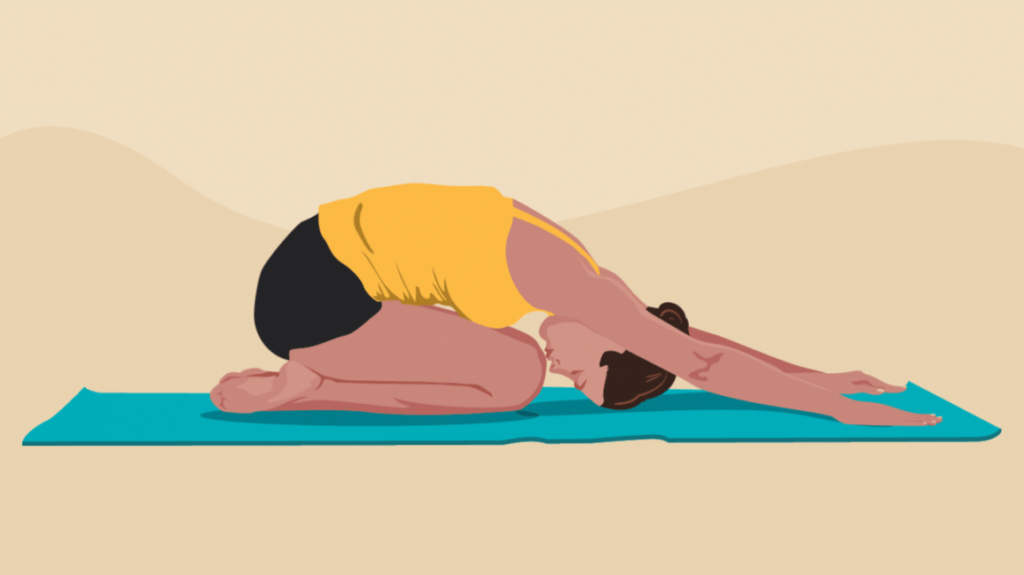
This image is property of i0.wp.com.
Creating a Relaxing Skincare Routine
Self-care plays a vital role in managing stress levels and promoting overall well-being. A crucial aspect of self-care is creating a skincare routine that not only caters to your skin’s needs but also promotes relaxation and stress reduction. Let’s explore the importance of a relaxing skincare routine and how to develop one.
The importance of self-care in managing stress
In the hustle and bustle of daily life, it’s easy to neglect self-care and prioritize other responsibilities. However, taking the time to care for yourself is essential for managing stress effectively. Engaging in activities that bring you joy and relaxation can help calm your mind, reduce stress levels, and improve your overall mood.
By incorporating self-care practices, such as a relaxing skincare routine, into your daily life, you can create sacred moments of tranquility and rejuvenation. These intentional moments of self-care send a powerful signal to your body and mind that you are worthy of love, nurturing, and rest.
Choosing skincare products that promote relaxation
When selecting skincare products for your relaxing routine, it’s important to choose items that not only benefit your skin but also offer sensory indulgence. Look for products that have soothing and calming ingredients like chamomile, lavender, or aloe vera. These ingredients have beneficial properties for the skin and can also help promote relaxation.
Along with choosing products with relaxing scents, consider the textures and sensations they provide. Opt for lightweight, non-greasy formulas that glide effortlessly onto your skin, providing a gentle and calming sensation. The act of applying these products can become a tranquil ritual that allows you to unwind and release stress.
Developing a soothing skincare routine for stress reduction
Developing a skincare routine that promotes stress reduction involves both the products you use and the rituals you create. Here are some steps you can incorporate into your routine to create a relaxing experience:
- Cleanse: Start by cleansing your face with a gentle cleanser, massaging it into your skin with slow, circular motions. This can help release tension in the facial muscles and promote relaxation.
- Exfoliate: Use a mild exfoliant to remove dead skin cells and reveal a fresh complexion. The physical act of exfoliating can also provide a gentle massage and stimulate blood flow.
- Mask: Apply a hydrating or soothing face mask that caters to your skin’s needs. While the mask works its magic, take this time to engage in deep breathing exercises or listen to calming music.
- Moisturize: After removing the mask, apply a nourishing moisturizer that locks in hydration and leaves your skin feeling soft. Take a few moments to gently massage the moisturizer into your face and neck, promoting relaxation.
- Eye care: Don’t forget to show your delicate eye area some love. Apply an eye cream or gel using your ring finger, gently tapping the product into the skin to reduce puffiness and dark circles.
- Lip care: Finish your routine by applying a nourishing lip balm, gently massaging it into your lips. This simple act not only hydrates your lips but also helps release tension in the jaw and facial muscles.
By approaching your skincare routine as a form of self-care and stress reduction, you can transform this daily task into a soothing ritual that leaves you feeling relaxed and rejuvenated.
Nutrition and Stress Management
It’s no secret that a healthy diet is essential for overall well-being, but did you know that it also plays a significant role in managing stress and promoting healthy skin? The link between nutrition, stress, and skin health is undeniable, and making simple dietary changes can have a profound impact on your well-being. Let’s explore the connection between diet, stress, and skin health.
Exploring the link between diet, stress, and skin health
Your diet can directly impact your body’s response to stress and influence the health and appearance of your skin. When you experience stress, your body releases stress hormones like cortisol and adrenaline, which can increase inflammation and exacerbate skin conditions. Certain foods can either exacerbate or alleviate this response, making them crucial for stress management and skin health.
Foods that help combat stress and promote healthy skin
Incorporating the right foods into your diet can help combat stress and support your skin’s health from within. Here are some nutrient-rich foods that provide stress-reducing properties and promote a radiant complexion:
- Leafy green vegetables: Rich in vitamins A, C, and E, as well as antioxidants, leafy greens like spinach, kale, and Swiss chard can help reduce inflammation and support healthy skin.
- Fatty fish: Omega-3 fatty acids found in fish like salmon, mackerel, and sardines have anti-inflammatory properties that can help calm the skin and reduce stress levels.
- Berries: Packed with antioxidants, berries like blueberries, strawberries, and raspberries help protect the skin from oxidative stress caused by free radicals.
- Nuts and seeds: Almonds, walnuts, flaxseeds, and chia seeds are excellent sources of healthy fats that enhance skin barrier function and help manage stress.
- Dark chocolate: A small piece of dark chocolate (at least 70% cocoa) can provide stress-relieving benefits thanks to its magnesium content. Additionally, antioxidants in dark chocolate can promote healthy skin.
Recommended dietary changes for stress reduction
To promote stress reduction and improve skin health through your diet, it’s important to make mindful and balanced dietary choices. Here are some recommended dietary changes to consider:
- Reduce processed foods: Processed foods are often high in refined sugars and unhealthy fats, which can worsen inflammation and stress levels. Opt for whole, unprocessed foods instead.
- Increase your fruit and vegetable intake: Aim to incorporate a variety of colorful fruits and vegetables into your meals. These vibrant foods are rich in antioxidants that protect your skin and support stress reduction.
- Consume omega-3 fatty acids: Include fatty fish, walnuts, and flaxseeds in your diet to benefit from their anti-inflammatory properties and support skin health.
- Stay hydrated: Dehydration can worsen stress and impair skin function. Ensure you’re drinking enough water throughout the day to keep your body and skin properly hydrated.
- Limit caffeine and alcohol: While small amounts of caffeine and alcohol can be enjoyed in moderation, excessive consumption can disrupt sleep patterns and exacerbate stress levels. Opt for herbal teas or water as alternative beverages.
By making these dietary changes, you can nourish your body from the inside out, manage stress more effectively, and achieve healthier, glowing skin.
This image is property of res.cloudinary.com.
Ensuring Quality Sleep for Stress Relief
Quality sleep is a cornerstone of overall health and well-being, and it plays a pivotal role in stress reduction. When you consistently experience restful sleep, your body has a chance to repair and regenerate, leading to a healthier and more vibrant complexion. Let’s explore the relationship between sleep and stress, and how lack of sleep can impact your skin.
Understanding the relationship between sleep and stress
Sleep and stress are closely interconnected, with each influencing the other. When you’re under stress, it can be difficult to fall asleep or stay asleep, leading to disrupted sleep patterns. On the other hand, lack of sleep can increase stress levels, creating a vicious cycle that negatively impacts your skin and overall health.
Effects of sleep deprivation on skin health
When you don’t get enough quality sleep, your body’s natural healing processes become compromised. As a result, your skin may experience a range of negative effects:
- Increased inflammation: Sleep deprivation can lead to increased levels of inflammation in the body, resulting in skin redness, irritation, and acne breakouts.
- Collagen breakdown: Sleep is essential for the production of collagen, a protein that maintains the skin’s elasticity and firmness. Lack of sleep can lead to collagen breakdown, leading to wrinkles and sagging skin.
- Impaired skin barrier function: A lack of sleep can hinder the skin’s ability to retain moisture, causing dryness, flakiness, and an overall dull complexion.
- Dark circles and puffy eyes: Insufficient sleep can result in blood vessels dilating under the eyes, causing dark circles. It can also lead to fluid retention, resulting in puffy eyes and a tired appearance.
Tips for optimizing your sleep routine to manage stress
Creating a bedtime routine focused on quality sleep can significantly improve your ability to manage stress and support your skin’s health. Here are some tips for optimizing your sleep routine:
- Establish a consistent schedule: Try to go to bed and wake up at the same time every day, even on weekends. This consistency helps regulate your body’s internal clock and promotes better sleep.
- Create a calm sleep environment: Make your bedroom a sanctuary for sleep by keeping it cool, dark, and quiet. Consider using blackout curtains, white noise machines, or soothing music to create a peaceful ambiance.
- Limit screen time before bed: The blue light emitted by electronic devices can interfere with your body’s natural sleep-wake cycle. Avoid screens, such as smartphones and laptops, for at least an hour before bed.
- Wind down with relaxation techniques: Engage in calming activities before bed, such as reading, taking a warm bath, or practicing gentle yoga or meditation. These activities help signal to your body that it’s time to relax and prepare for sleep.
- Avoid stimulating substances: Minimize consumption of caffeine and nicotine, especially in the afternoons and evenings. These substances can interfere with sleep and increase stress levels.
- Invest in a comfortable mattress and bedding: A supportive mattress and comfortable bedding can significantly impact your sleep quality. Make sure your sleep environment is conducive to relaxation and uninterrupted rest.
By prioritizing quality sleep and incorporating these tips into your routine, you can manage stress more effectively, promote skin health, and wake up feeling refreshed and rejuvenated.
Relaxation Techniques for Instant Stress Relief
In our fast-paced and demanding world, it’s crucial to have quick and effective relaxation techniques at your disposal to alleviate stress. These techniques can be lifesavers in moments of overwhelm or when you simply need a mental and emotional reset. Let’s explore some relaxation techniques that not only alleviate stress but also promote skin rejuvenation.
Quick and effective relaxation techniques to alleviate stress
- Deep breathing: Deep breathing exercises are easy to do anywhere, anytime, and can provide instant stress relief. Take a slow, deep breath through your nose, filling your abdomen with air. Hold for a few seconds, then exhale slowly through your mouth. Repeat this several times, focusing on the sensation of your breath entering and leaving your body.
- Progressive muscle relaxation: This technique involves consciously tensing and then releasing each muscle group in your body, starting from your toes and working your way up to your head. By relaxing the muscles, you can release physical tension and promote a sense of calm.
- Sensory grounding: Engage your senses to create a moment of calm. Close your eyes and take a few deep breaths, then focus on the sensations around you. Notice the weight of your body against the chair, the feel of the ground beneath your feet, and the sounds or scents in the environment.
- Guided imagery: Visualize a peaceful and relaxing scene in your mind, such as a tranquil beach or a serene forest. Try to imagine the sensory details of this scene, focusing on the sights, sounds, and smells. This technique can transport you mentally to a calm and rejuvenating place.
- Journaling: Grab a pen and paper and spend a few minutes writing down your thoughts, feelings, and worries. The act of transferring your thoughts onto paper can provide a sense of release and help you gain perspective on your stressors.
Breathing exercises that promote relaxation and skin rejuvenation
In addition to the general deep breathing technique mentioned earlier, there are specific breathing exercises that can aid in relaxation and skin rejuvenation. Try incorporating these techniques into your routine:
- Alternate nostril breathing (Anulom Vilom): Close off one nostril with your thumb and inhale deeply through the other nostril. Close off the second nostril with your ring finger and release the first nostril, exhaling through it. Repeat this cycle, alternating nostrils with each breath. This technique helps balance the flow of energy in the body, promoting relaxation and rejuvenation.
- Lion’s breath (Simhasana Pranayama): Open your mouth wide, stick out your tongue as far as possible, and exhale forcefully while making a “ha” sound. This technique helps release tension in the face, neck, and jaw and can promote a more relaxed and youthful appearance.
By incorporating these breathing exercises into your routine, you can tap into your body’s natural relaxation response, reduce stress levels, and promote healthy, glowing skin.
Incorporating mindfulness practices into your daily life
Mindfulness involves being fully present in the moment, without judgment or attachment to thoughts or emotions. By incorporating mindfulness practices into your daily life, you can cultivate a sense of calmness, reduce stress, and promote skin rejuvenation. Here are some mindful activities you can engage in regularly:
- Mindful eating: Take the time to eat your meals mindfully, paying attention to the flavors, textures, and sensations of each bite. Avoid distractions, such as screens or work, and savor the nourishment your food provides.
- Mindful walking: Instead of rushing from one place to another, take moments to slow down and walk mindfully. Notice the sensation of your feet touching the ground, the movement of your body, and the sounds and sights around you.
- Mindful showering: Turn your daily shower into a mindfulness practice by focusing on the sensation of the water on your skin, the scent of the soap, and the warmth enveloping your body. Allow yourself to fully immerse in this moment of self-care.
- Mindful moments: Throughout the day, take a few seconds or minutes to check in with yourself. Notice your breath, observe your surroundings, and let go of any tension or stress you may be feeling.
Incorporating these mindfulness practices into your daily life can help you stay present, reduce stress levels, and enhance the health and rejuvenation of your skin.
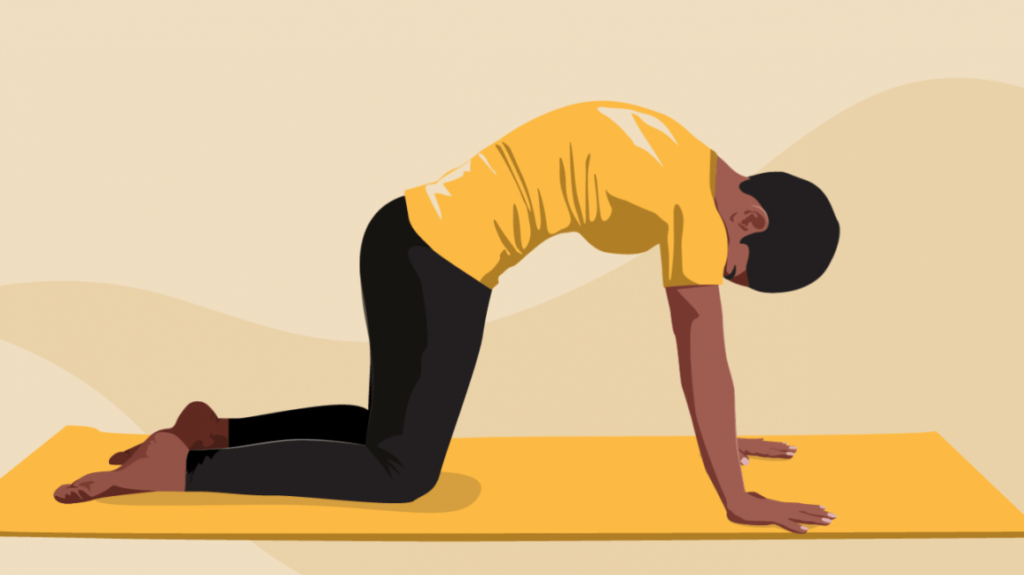
This image is property of i0.wp.com.
Social Support and Stress Management
As social beings, human connection and support from others play a crucial role in managing stress effectively. Building and nurturing supportive relationships can be instrumental in reducing stress levels and improving your skin’s health and appearance. Let’s explore the importance of social connections in stress reduction and how they impact your skin.
Importance of social connections in stress reduction
Having a strong social support network can significantly impact your ability to cope with stress. Engaging with family, friends, and loved ones can provide emotional support, a sense of belonging, and opportunities for sharing and venting. Social connections give us a platform to be heard, validated, and understood, which can alleviate stress and promote overall well-being.
Supportive relationships and their positive impact on skin health
The quality of your relationships can directly impact your stress levels and, consequently, your skin health. Supportive relationships provide a buffer against the negative effects of stress, creating an environment of safety and comfort. When you feel valued, loved, and supported, your body is better equipped to manage stress effectively, leading to improved skin health.
Furthermore, engaging in social activities and spending time with loved ones can be highly beneficial for your mental and emotional well-being. Laughter, shared experiences, and genuine connections release feel-good hormones, positively influencing your skin’s appearance and vitality.
Tips for cultivating a strong support network
Building and maintaining a strong support network requires time, effort, and commitment. Here are some tips to help you cultivate and nurture supportive relationships:
- Prioritize quality over quantity: It’s not about the number of relationships you have but the depth and authenticity of those connections. Focus on building meaningful and reciprocal relationships with individuals who uplift and support you.
- Communicate openly and honestly: Foster trust and vulnerability within your relationships by being open and honest in your communication. Express your needs, listen actively, and offer support when needed.
- Foster diverse connections: Seek connections with individuals from different backgrounds, perspectives, and interests. Diverse relationships can broaden your horizons, challenge your assumptions, and provide unique support.
- Show appreciation and gratitude: Take the time to express gratitude and appreciation for the people in your support network. Small gestures of kindness and acts of reciprocity can deepen the bonds and strengthen your relationships.
- Be there for others: Building supportive relationships is a two-way street. Offer your support, lend a listening ear, and be present for the people in your network. By being there for others, you create a strong foundation for support when you need it.
By prioritizing social connections and cultivating a strong support network, you can reduce stress, improve your overall well-being, and positively impact the health and appearance of your skin.
Seeking Professional Help for Chronic Stress
While stress is a natural part of life, prolonged or chronic stress can have serious implications for your mental and physical health, as well as your skin. If you find that stress is becoming unmanageable and interfering with your daily life, it may be time to seek professional help. A dermatologist or mental health professional can provide guidance, support, and treatment options tailored to your specific needs.
Recognizing when stress becomes chronic and unmanageable
It’s important to recognize the signs of chronic and unmanageable stress. If you experience the following symptoms on a regular basis, it may be an indication that your stress levels have reached a point where professional help is necessary:
- Persistent feelings of anxiety or depression
- Difficulty sleeping or insomnia
- Intense and prolonged fatigue
- Inability to concentrate or make decisions
- Irritability and mood swings
- Constant worry and racing thoughts
- Physical symptoms such as headaches, muscle tension, or digestive issues
It’s crucial to listen to your body and mind, and not hesitate to seek help if stress becomes overwhelming.
The role of therapy and counseling in stress management
Therapy and counseling can be highly effective tools for managing chronic stress and improving your overall well-being. Working with a mental health professional can help you gain insight into the underlying causes of your stress, develop coping strategies, and find healthier ways to manage stress.
Therapy sessions provide a safe and non-judgmental space to explore your thoughts and emotions surrounding stress. A trained therapist can offer guidance, teach you stress management techniques, and help you develop healthy coping mechanisms.
Consulting a dermatologist for skin issues related to stress
If prolonged stress has manifested in specific skin issues, consulting with a dermatologist can provide targeted treatment and support. A dermatologist can assess your skin condition, determine the underlying causes, and recommend appropriate skincare products or procedures.
Additionally, some dermatologists may collaborate with mental health professionals to address the connection between stress and skin health comprehensively. This multidisciplinary approach ensures that both the physical and psychological aspects of stress and its impact on the skin are addressed.
Seeking professional help for chronic stress not only allows you to address the root causes of your stress but can also make a significant difference in the health and appearance of your skin. Remember, you deserve to prioritize your well-being and seek the support you need.
Conclusion
Managing stress is crucial for maintaining healthy skin and overall well-being. By understanding the impact of stress on your skin, incorporating stress management tools like exercise, yoga, and meditation, embracing a relaxing skincare routine, nourishing your body with a balanced diet, ensuring quality sleep, practicing relaxation techniques, fostering social connections, and seeking professional help when needed, you can effectively manage stress and achieve radiant, healthy skin. Remember to prioritize self-care, listen to your body, and make stress management a priority in your life. Your skin and overall health will thank you for it.
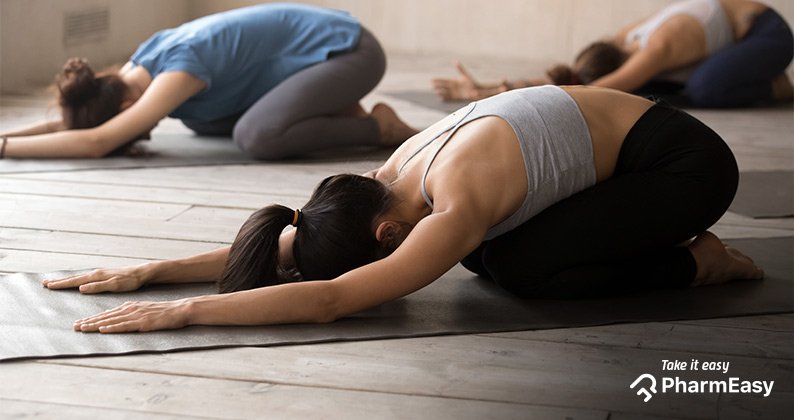
This image is property of blog-images-1.pharmeasy.in.
